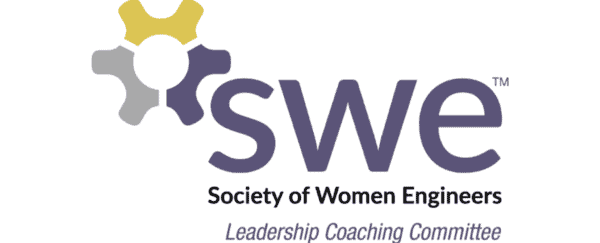“7 Ways Engineers Can Improve Their Writing Skills” was contributed by Carol Duke.
In this day and age, it’s imperative that engineers write efficiently. This is especially true for those who are looking to broaden their horizon and possess a diverse set of skills for career development.
It’s true that engineers are more likely to get their hands dirty with fieldwork than develop carpal tunnel syndrome for spending too much time writing test reports and procedures. However, we can’t deny the fact that, in this increasingly meticulous world where even the most minute of details in engineering work are being scrutinized, it’s important to have excellent writing skills.
Adaptability is the key to becoming a successful engineer. Below are some ways to help improve your written communication skills.
1. Make writing a top priority.
If you’re looking to polish up your writing skills, always keep in mind that writing should never be just an afterthought. Remember to include documentation for every major activity, like planning your schedule for the week or when managing a big project.
By integrating writing into the engineering process, it becomes less burdensome and a natural part of your regular tasks. Of course, don’t leave it to the last minute, because rushed writing is basically bad writing. Set time for planning, writing, and reviewing documents.
2. Understand and familiarize yourself with the subject.
Albert Einstein couldn’t have said it better: “If you can’t explain it simply, you don’t understand it well enough”. This applies to pretty much any mechanism or phenomenon out there. Meaning, if you can’t explain it well, then you have not understood it well.
Engineers often have to deal with writing technical articles, which are not necessarily complex. Yes, the subject may not always be easy to tackle, but an engineer’s objective is to explain this complex idea in a simple and easy-to-understand way.
The solution is quite simple: Be familiar and study the subject well.
Once you have good grasp of the subject matter, the next step is to create a structure for the content. It’s critical to have a structure because it ensures that all important points are covered effectively and appropriately within your article. Without it, you’re more likely to fail to add in essential details or worse, write the whole content all over again.
3. Keep it simple.
There’s beauty in simplicity, and that couldn’t be more true for technical writing.
After you finish writing the entire piece, take a short break before reading it from the top. Doing so allows you to read your content with a fresh mind, which in turn, makes it easier to identify mistakes and other errors.
At the same time, you will be able to spot parts in your content that may be difficult to comprehend. Try proofreading your article in a reader’s point of view. It’s the best way to help keep your article simple, readable, and easy to comprehend.
Don’t feel like doing this yourself? It’s okay to get an expert in. There’s a great number of professional writers who can assist you with technical writing and documentation. Check out top writing services and find out how they can provide writing assistance for your project.
4. Write in active voice.
Engineers often have to deal with the technical side of things, including technical writing. When working with this type of content, remember that it rarely dwells in the past.
The action of a subject related to an object, can be expressed in two ways, known as active voice and passive voice.
Example:
-
-
-
- Active voice: Integrating accessibility during the engineering process ensures a better experience for users.
- Passive voice: A better user experience was ensured by integrating accessibility during the engineering process.
-
-
The sentence is the same, but the structure changes when expressed as active or passive voice. However, the meaning of the sentence remains the same.
If you write a technical article in passive voice, your content will tend to look a bit off. On the other hand, if it’s written in active voice, the tone of your article will appear more engaging and authoritative.
5. Spice it up with visuals.
Before someone starts asking why we’ve included this in an article about helping engineers to improve their writing skills, consider this: It’s just as important to help your audience easily understand what you write.
There will be times an engineering process is too complicated to understand with words alone. This where good graphics come into play.
By using visual aids like diagrams and illustrations, you not only add value to your content, you increase reader comprehension as well. Just make sure your visuals are properly referenced within your text.
6. Review your work.
Use available tools and software to proofread and edit your work. For example, you can check your text using Microsoft Word’s spelling and grammar check features with its readability tool. You can also use an online application like Grammarly.
Always remember to review your work with your readers in mind. Another effective trick is to read your content aloud. This way, you can pinpoint phrases or sentences that seem awkward, as well as repetitive or unnecessary words.
A lot of engineering companies conduct their own review process using the first-draft-revised draft-final version. Necessary revisions are done by fellow experts, co-workers, or supervisors. Include this into your writing schedule and get a full understanding of your company’s review process.
Reviewing your work is rewarding, in that it can provide a fresh perspective. Edits and feedbacks from other people offer valuable and insightful lessons that help improve your writing skills.
7. Read, read, read!
Take advantage of learning opportunities, including reading. It’s an overlooked aspect of honing one’s writing skills. The more you read, the more you learn about proper sentence structuring, which has a huge impact on vocabulary.
The problem is, vocabulary is an area many engineers struggle with. But without rich vocabulary, it can be difficult to explain things in a simple manner.
Make reading a habit. Because with reading, you expose yourself to another person’s perspective on things. It helps you form your own opinions, and the boost in vocabulary allows you to translate complexities into simple terms.
Good writing skills give more light on important engineering tasks. Improved writing skills don’t happen overnight, but they provide huge value to the company, your work, and your career.
Writing may be challenging but with constant practice, it’s a trade that’s worth mastering—especially for an engineer. So pick up a pen or prepare your laptop, and write away!
 About the author:
About the author:
Carol Duke is very keen on teaching students new, effective ways of learning. When not freelancing and blogging on education-related matters, Carol enjoys traveling, taking immense pleasure from visiting new countries. You can follow her on Twitter.
Related content:
- 10 Tips for Writing a Great Engineering Resume
- Soft Skills And The Liberal Arts Remain Important To STEM Education
- Top 10 Best Mac Apps for Modern Engineers
- How to Raise a Female Engineer in 5 Easy Steps
- How to Assess Various Types of Engineering Degrees






